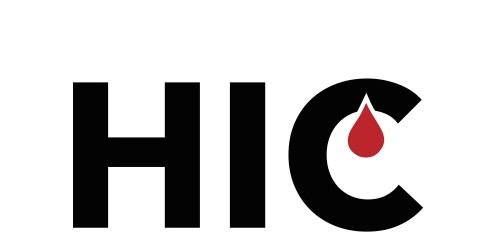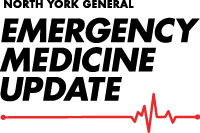pre-conference courses
CHOOSE FROM 7 AMAZING COURSES
COMING SOON!
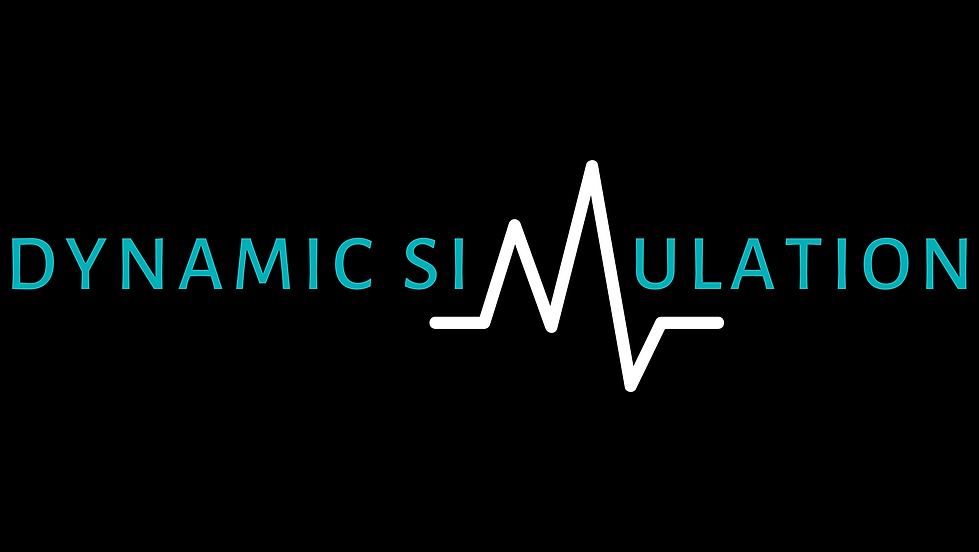
Dates:
April 7 & 8, 2025
Location: North York General Hospital
- Physician: $1,100.00
- Resident/PA/Nurse/NP: $900.00
Dynamic Simulation
Full-Day Critical Care Simulation
This one-day course provides an immersive, hands-on, critical-care simulation experience tailored for healthcare professionals who work in Emergency Medicine. Participants will engage in seven simulation scenarios designed to elevate their critical care knowledge, skills, teamwork, and decision-making in high-stakes environments.
Complex Cases
Cases are selected from a library of over 35 scenarios based on a needs assessment sent to participants beforehand. Case examplesinclude Massive Upper GI Bleed, Calcium Channel Blocker Toxicity, Pediatric Polytrauma, AMAX 4 Resuscitation, Status Epilepticus, Massive Pulmonary Embolism. Procedures which may be reviewed (depending on case selection) include Awake Intubation, Blakemore Insertion, SALAD Intubation, Central Line Insertion.
Refined Program and Cases
Developed through the delivery of hundreds of simulations at over 20 hospitals across Ontario, our mobile simulation program emphasizes hands-on learning, interdisciplinary collaboration, and effective team leadership. It is led by experienced emergency physicians, nurses, and respiratory therapists, ensuring a highly interactive experience.
Diverse Participation
This full-day session is designed for emergency and critical care teams in both urban and rural settings, including Physicians, NPs, PAs, Residents, and Nurses.
At the end of this course, participants will be able to:
- Confidently manage complex, high-acuity low occurrence (HALO) events
- Improve decision making under pressure
- Strengthen communication and collaboration within interdisciplinary teams, fostering a shared mental model during resuscitations
- Perform, or assist with key emergency procedures with increased confidence and skill
- Adopt to evolving critical scenarios with flexibility, ensuring resilience and maintaining quality care
3 Day CASTED Emergency Course
FULL
CASTED: Emergency – The Hands-on ED Orthopedics Course
CASTED is a comprehensive, ED orthopedics course. 2 days online to change your approach to ED ortho: crisper assessments, deeper differentials, better x-ray interpretation; clearer indications for reduction; improved disposition skills. Day 1 online in synchronous – choose your date (with access to the recording). Day 2 is asynchronous – at your pace. Then, a 3rd hands-on day for a sharper physical exam review, multiple reduction techniques and immobilization demos with tons of hands-on practice.
Your approach to ED orthopedics will be better. Better assessments, better ordering and interpreting imaging, better reductions and immobilization, and better disposition skills.
Day 1 – online and synchronous. Day 2 – online and asynchronous. Day 3 in-person. 3 days of teaching, spaced out over time. This ‘spaced repetition’ helps with maintaining practice-changing pearls.
Synchronous Online Days:
Mar 4, 2025 or Apr 3, 2025
Hands-On Day:
April 8, 2025, Toronto
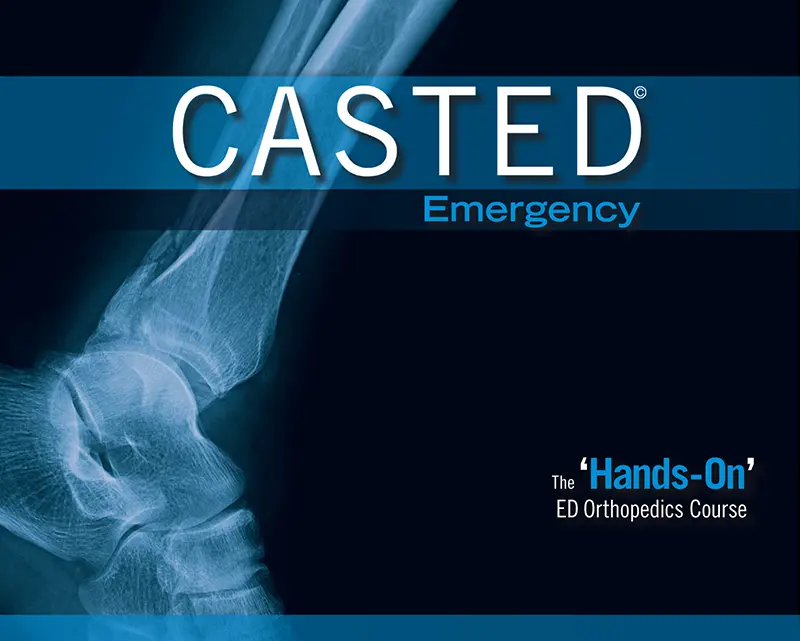
- Physician: $2,550.00
- Nurse/Med Tech/PA: $1,955.00
- Resident/Student: $1,845.00
(Taxes extra, course materials included)
Mainpro + : 61.5 hours (up to 50 MOC Section 1)
For more information visit CASTED.ca or contact us at CASTED@nygh.on.ca
HEARTS
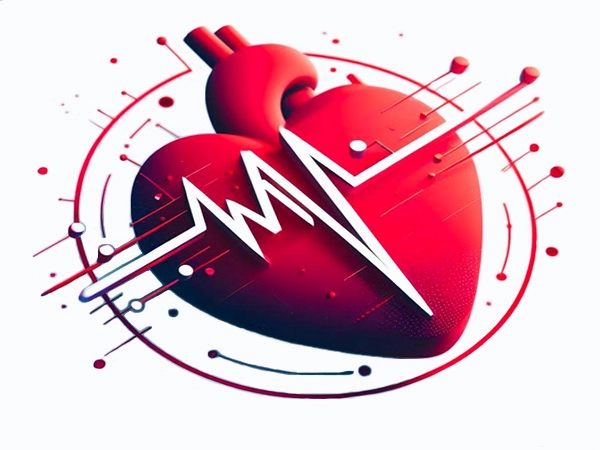
Date: April 8, 2025
- $499 for full course access
Intended audience:
Practicing EM clinicians, senior residents, or anyone who took HEARTS Resident or EMS and wants to expand on their knowledge.
HEARTS Advanced: ECG interpretation for Occlusion MI
What to Expect During the Course:
- Session 1: Identify common pitfalls in STEMI diagnosis (false positives/negatives) and explore evidence-based strategies for recognizing Occlusion MI.
- Session 2: Hands-on practice with real-life cases, applying the HEARTS approach and evidence-based advances.
Course Goals:
- Understand physiologic and pathophysiologic correlates of ECG findings.
- Master the HEARTS approach to ECG interpretation.
- Learn and apply evidence-based advances to detect Occlusion MI effectively.
- Practice using the HEARTS method to identify high-stakes ECG abnormalities confidently.
Why Join This Course?
- Gain specialized skills for emergency medicine (EM) ECG interpretation.
- Access exclusive tools and resources to boost your expertise.
- Learn from real-world cases to enhance clinical decision-making.
SYNAPSE
FULL
SYNAPSE is a full-day, online, EM Neuro course presented by Canada’s leading EM Neuro Educator, Dr Katie Lin. It is an interactive, high-yield, and immediately practice-changing.
SYNAPSE debuts Friday, April 4 (in advance of EMU 2025) with a special introductory offer.
You will learn about the common, the critical, and the commonly missed.
- The ‘Golden Hour’ of neuro-protective resuscitation and how to optimize it
- Stroke, TIAs, and common misses and mimics – Concise, evidence-based approach to investigation and management.
- Traumatic Brain Injury – What to Do and Why.
- Headaches in the ED – approach to the common, the dangerous, and the refractory.
- Seizures – Stable, Suspect, and Status.
- Altered Mental Status & Weakness – a rational ED approach.
SYNAPSE is designed with clinicians in mind – trainee or a seasoned clinician; urban or rural; physician, resident, nurse, NP, paramedic, or allied healthcare provider. If you manage ED patients with neurologic complaints, SYNAPSE is for you. The content is evidence-based, expert-informed, with a focus at the bedside. You will use your new skills immediately on your next shift.
Dr. Katie Lin is the course creator and presenter. She is an Emergency Physician in Calgary, the only ED doc who takes calls on their Code Stroke Team, and a transport physician for their provincial STARS program. Plus, she loves teaching colleagues about neurologic emergencies!
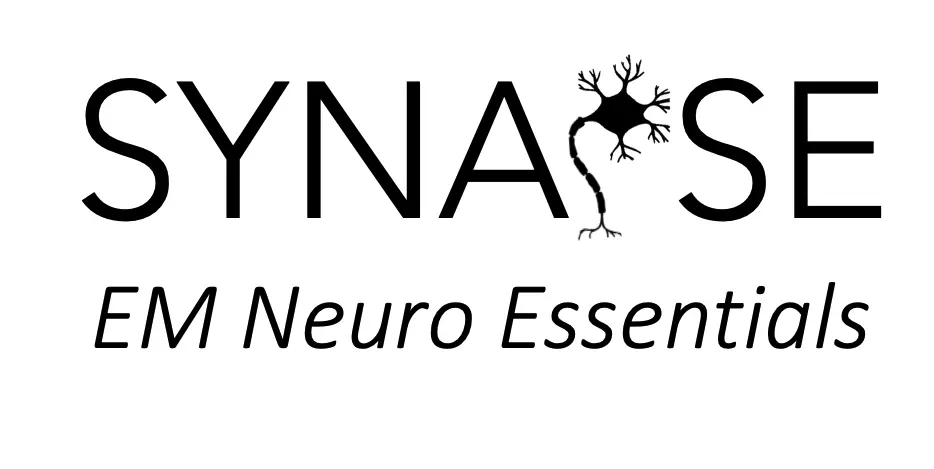
- Physician: $375.00
- Nurse/Med Tech/PA: $325.00
- Resident/Student: $275.00
(Taxes extra, course materials included)
SYNAPSE is accredited for 27 Mainpro+ Credits (and with reciprocal agreement, = 27 MOC Section 1, up to 50 per cycle).
Date: April 4, 2025, 10:00am to 6:00pm EST
Contact:
Allison Ho, Conference Services, NYGH
conferences@nygh.on.ca
416-756-6443
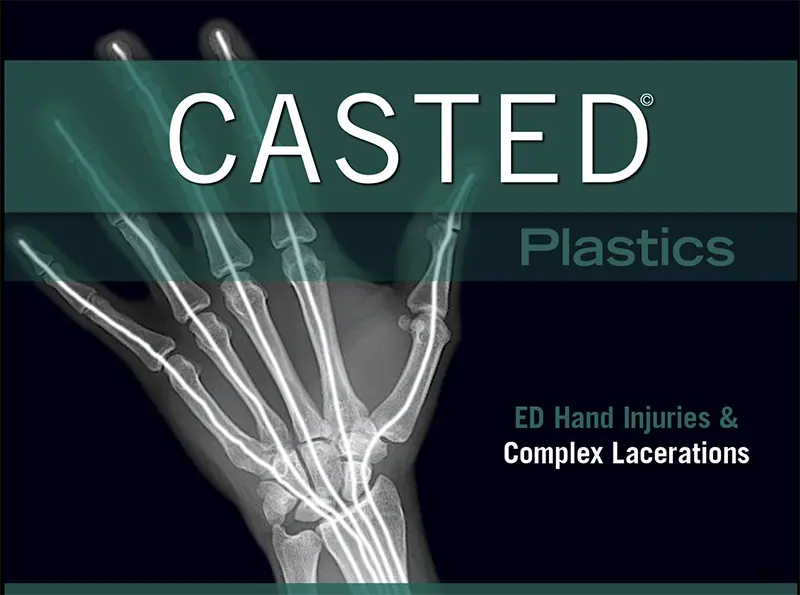
Online Date: March 26, 2025 (with access to course recordings)
Hands-On Date: April 7, 2025 in Toronto
- Physician: $1,595.00
- Nurse/Med Tech/PA: $1,275.00
- Resident/Student: $1,045.00
(Taxes extra, course materials included)
Mainpro + : 36 hours (up to 36 MOC Section 1)
Intended audience:
Emergency Medicine staff MDs, residents, PAs, orthopedic technologists, NPs, RNs and urgent care staff. Rural to urban centres.
CASTED: Plastics - ED 'Hand Injuries and Complex Lacerations'
- Comprehensive Skill Development: This 2-day course is designed to enhance the ability of ED physicians and practitioners to manage complex lacerations and hand injuries, providing practical, high-yield knowledge and skills.
- Hybrid Learning Format: Day 1 features online sessions focusing on principles and case management, while Day 2 offers hands-on practice, ensuring a well-rounded educational experience.
- Focused on Common Challenges: The course addresses common yet challenging injuries seen in the emergency department, such as hand injuries, where misdiagnosis and maltreatment are prevalent.
- In-depth Case Studies and Demonstrations: Participants will engage with numerous case studies and witness demonstrations to better understand the intricacies of injury management.
- Hands-On Practice: Supervised hands-on sessions allow participants to apply learned principles and techniques, enhancing their practical skills.
- Coverage of Critical Topics: Key topics include anatomy review, tendon injury examination and repair, nail-bed lacerations, facial lacerations, and proper splinting and dressing techniques.
- Specialized Knowledge on Hand Injuries: The course delves into hand infections, fractures, amputations, and the approach to major hand trauma and deep wounds, offering specialized knowledge crucial for ED settings.
- Practical Tips and Tricks: CASTED: Plastics provides actionable tips and tricks that participants can immediately apply in their next shifts, emphasizing the real-world impact of the course content.

- Physician(CAEP Member): $1,350
- Resident (CAEP Member): $1,150
- Physician/Resident (Non-Member): $1,650
Airway Interventions and Management in Emergencies (AIME)
The Airway Interventions and Management in Emergencies (AIME) course has been providing valued and practical hands-on airway management learning experiences for clinicians around the world for over 21 years.
This program is designed for physicians working in an acute care setting requiring them to competently manage patients in need of emergency airway management.
Learning Objectives
At the end of this program, the learner can expect to:
- Practice making acute care airway management decisions. (Medical/Family Medicine Expert)
- Organize a practical staged approach to airway management. (Leader)
- Choose the most appropriate method of airway management based on a variety of patient presentations. (Medical/Family Medicine Expert)
- Choose appropriate pharmacologic agents used to facilitate airway management. (Medical/Family Medicine Expert)
- Illustrate when and how to use various tools and adjuncts for managing the difficult airway. (Medical/Family Medicine Expert)
1 Day course offered on these two dates:
April 7, 2025
April 8, 2025
The EDE 2 Course, Point-of-Care Ultrasound for the Advanced User
This open/public EDE 2 Course will be held in conjunction with the Emergency Medicine Update (North York) Conference. The conference website is www.emupdate.ca. This course will be held on Tuesday, April 8, 2025 and take place at Michael Garron Hospital. Transportation will be made available to and from the conference hotel and the course site. EMU attendees will receive a $100 rebate at the time of the course. If the course is full, please sign up for the wait list. Spots do occasionally open up. Participants receive 2 days of high-end CME credits for completing EDE 2. One day of credits is received for attending the live event. The additional day of credits is for completing the online modules. The live part of the course consists mostly of scanning sessions, with mini-lectures to remind participants how to perform the various scans. Participants complete the EDE 2 online modules at a time and place of their choosing in the weeks leading up to the course. The modules are cutting-edge and very interactive. Included in the cost of registration is access to Essentials of Point-of-Care Ultrasound (a.k.a. the EDE e-book), which combines the course manuals of EDE and EDE 2. It is now available on a platform that works for all users: Apple, Windows, and Android. Participants also get automatic access to the new EDE App. It called EDE Bedside Aid and is available from the Apple App and Google Play stores.
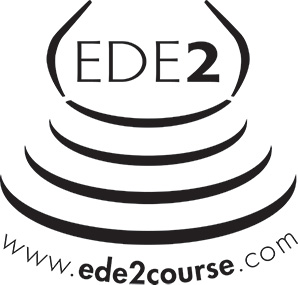
Date: April 8, 2025 in Toronto
You should only take EDE 2 if you have taken a basic course and use ultrasound on a regular basis. The EDE eBook and Smart Phone App access are included.
The Hemodynamic Instability Course
HIC is the Hemodynamic Instability Course – focused on advanced vascular access and the management of critically ill, hypotensive patients. It is an enjoyable, high-yield, practice-changing course delivered by award-winning, amazingly collegial EM educators with experience in community and rural ED’s. This course is relevant to anyone who works from rural to urban and manages patients in shock (EM, hospitalist, anesthesia, etc).
In-Person: April 8, 2025 in Toronto
HIC combines ~3 hours of pre-course lectures (asynchronous) with a full day of in-person teaching. Brief focused pre-course lectures will review “The 1st 20 Minutes”, Priorities in Peds, Trauma and Sepsis, Pressor Pearls, Practical Central Line Anatomy, Crisis Resource Management, and much more!
The in-person day combines small group, hands-on sessions using simulation mannequins. Added are case reviews centred around the pre-course lectures – a true ‘flipped classroom’. You learn the principles pre-course – now you get to put them to use.
By the end of the course, you will have mastered not only the skill of central line insertion but also reviewed the ‘where, when, why and how’ of caring for critically ill patients. Your confidence in managing these incredibly sick patients will be significantly greater by the end of the day. Take these skills to the bedside and you will save lives!
Accreditation: Royal College (and all other non-CFPC participants) may claim up to 27 certified credits per cycle for participation in Royal College MOC Section 1 activities.

Date: May 7, 2024 in Toronto
- Physician: $2,000.00
- Medical Learner/Allied Health: $1,800.00
EDE 1
Prairie POCUS is Canada’s largest ultrasound training center and we aim to improve patient care by enhancing the clinical ultrasound skills of participants. We offer a large range of courses spanning beginners to advanced ultrasound ninjas.
Program Objectives
EDE Core is an intense 1-day hands-on workshop designed for participants to complete the practical training component of their introductory course in point-of-care ultrasound.
An online mandatory precourse must be completed before the course day so we can focus on maximum time at the bedside with hands-on probe training. We have maximized the instructor and machine ratios to ensure you keep scanning. It is suggested to schedule a minimum of 10 hours to complete the precourse.
In this course, we will cover point-of-care detection of;
- Detection of global cardiac activity
- Pericardial effusions
- Abdominal Aortic Aneurysms
- Intra-abdominal hemorrhage
- Pneumothorax
- Pleural effusions
- Intrauterine pregnancies

